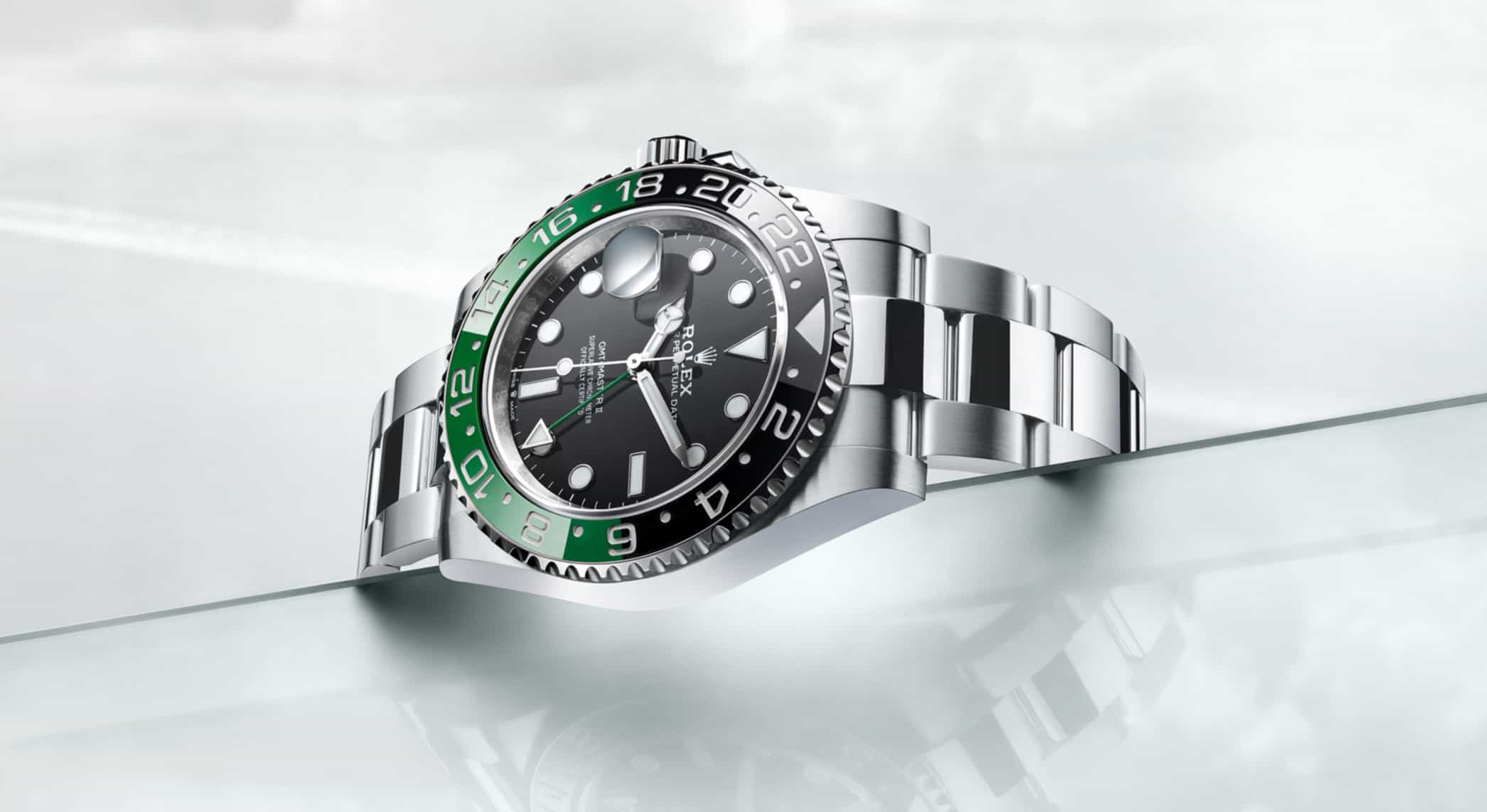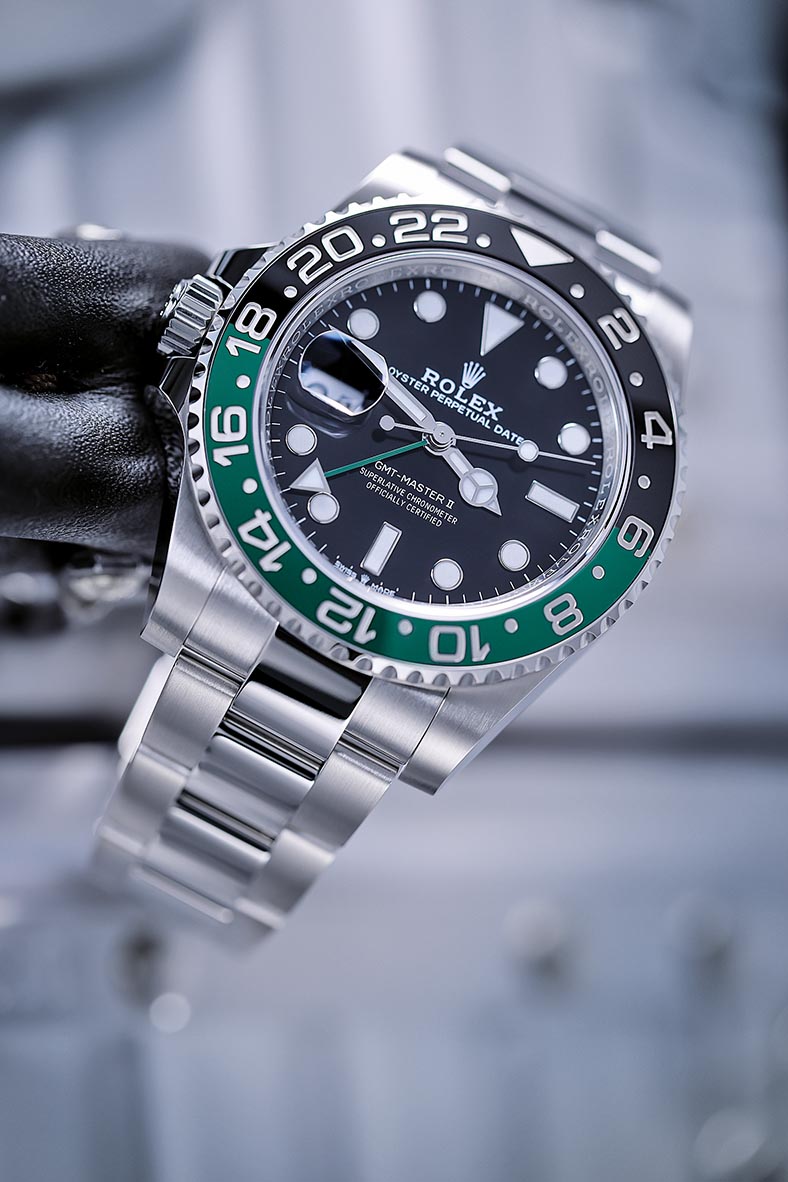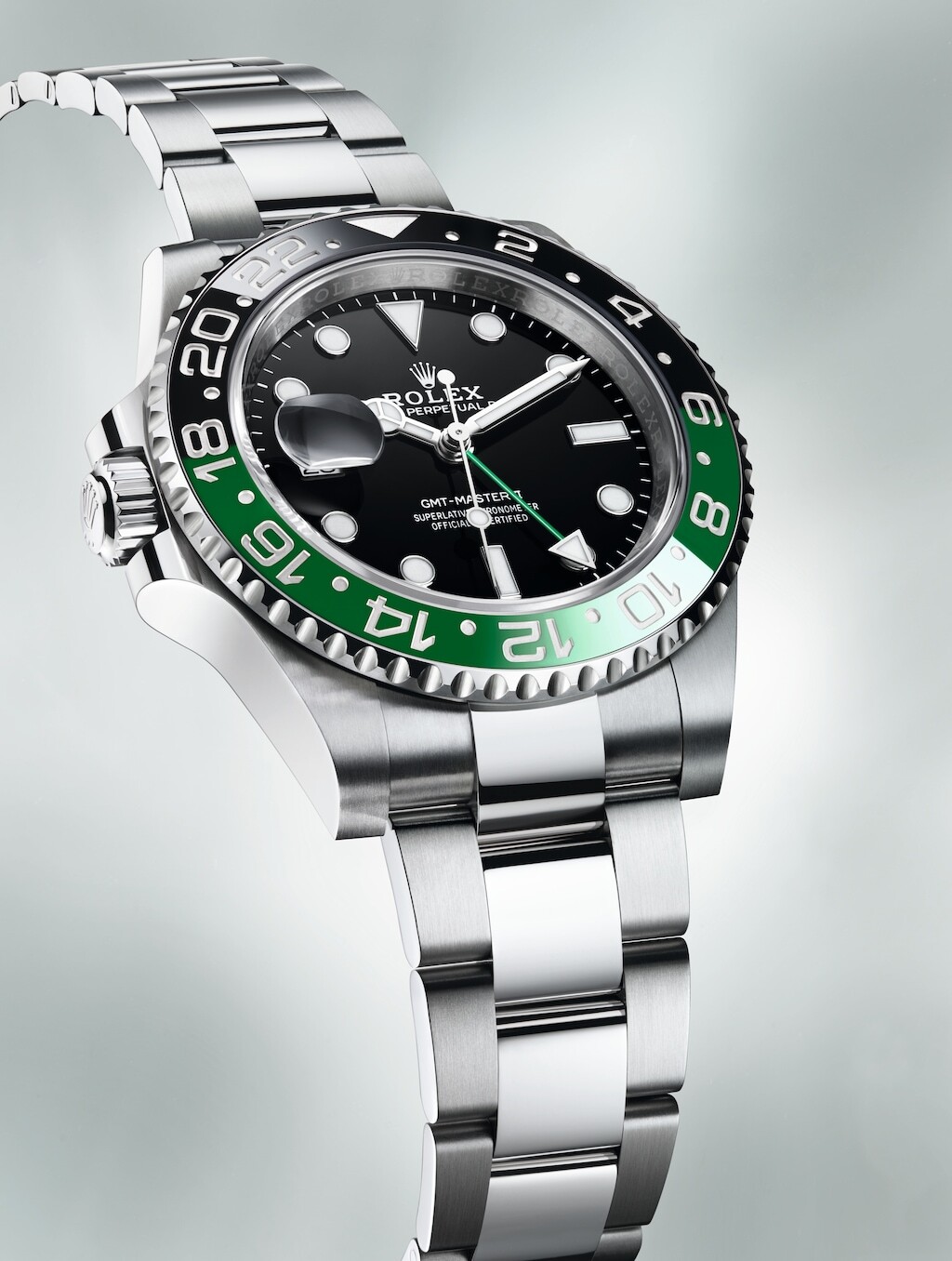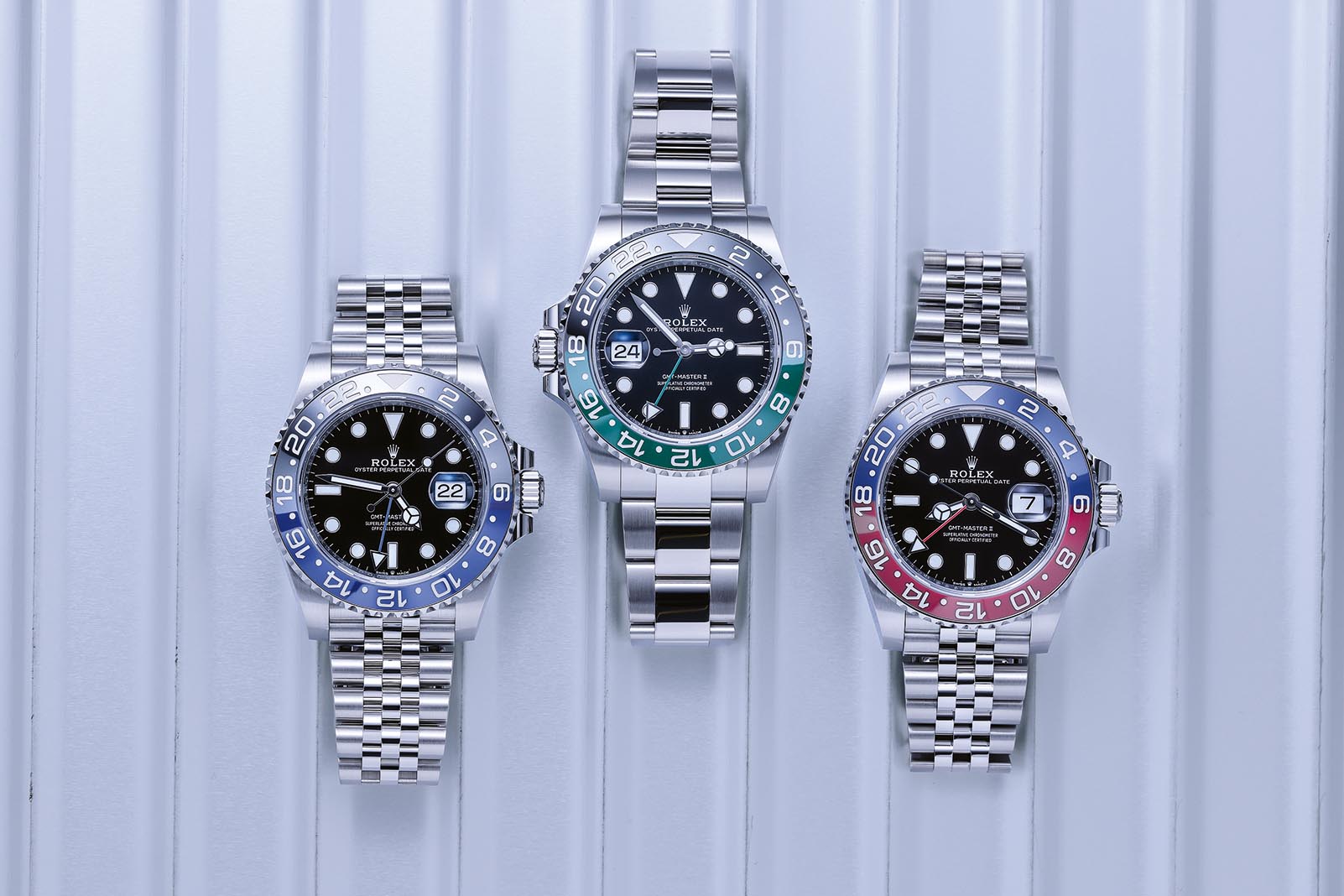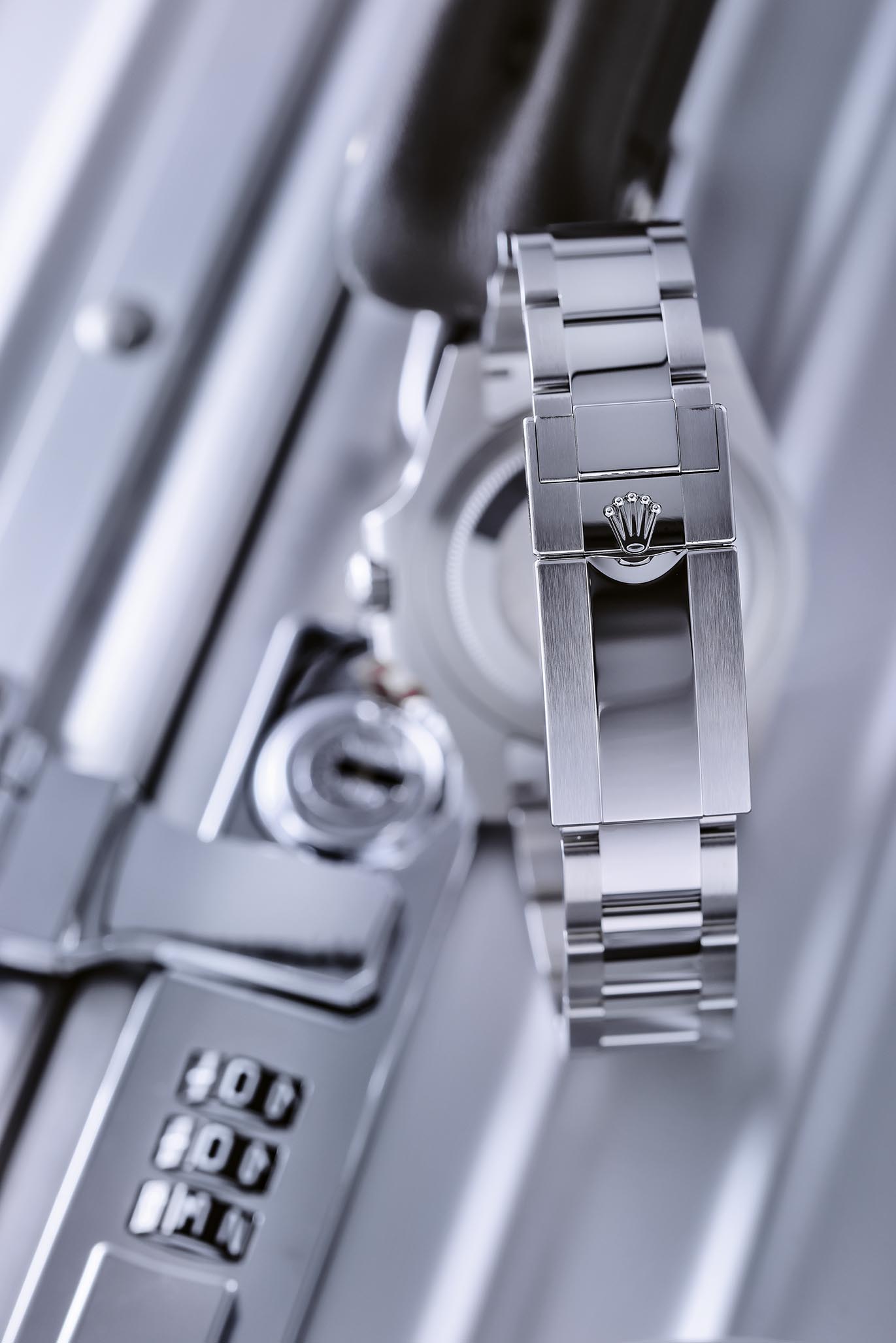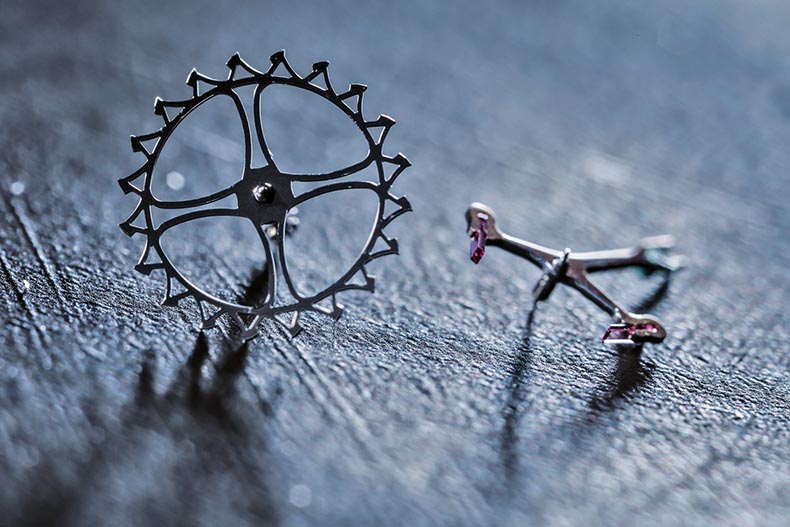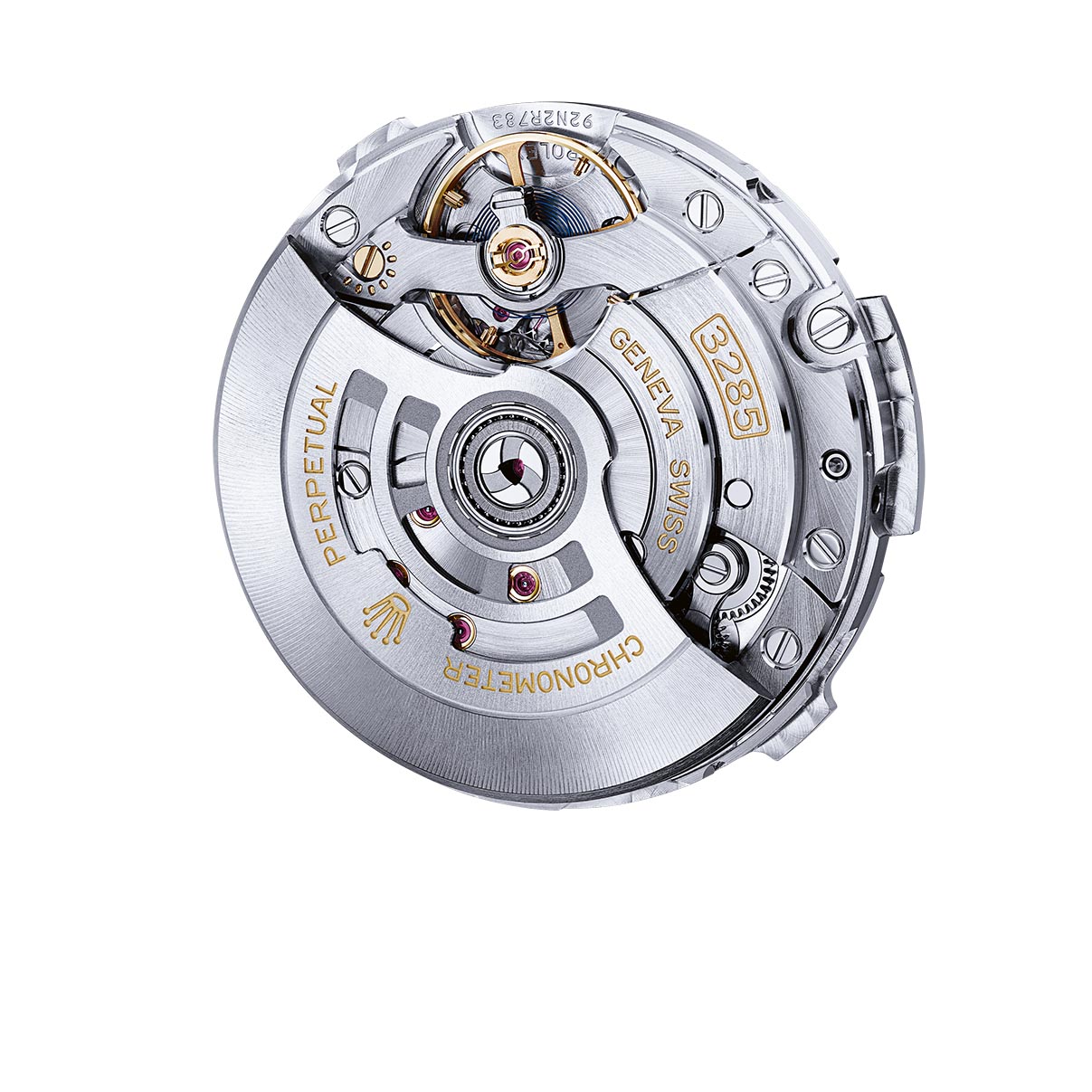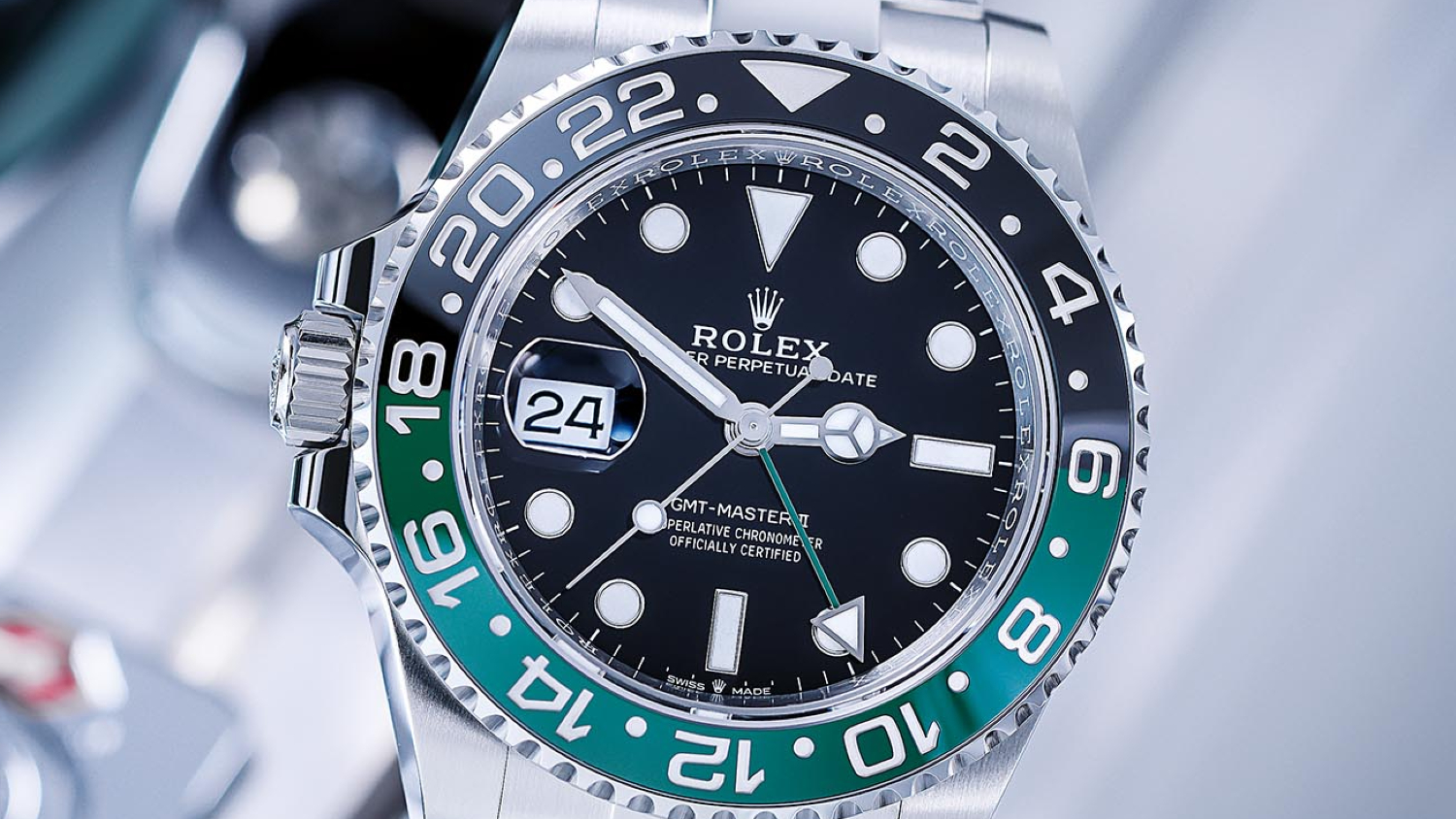One thing is clear: Left-handed people have it harder than the rest of us. Although they are no longer forced to write with their weaker right hand (even Rolex CEO Jean-Frédéric Dufour is said to have trained himself to use his right hand), most everyday objects, like scissors and can openers, are designed for right-handed people. Lefties find them hard to use. Left-handers make up about 10 percent of the population, so it’s a pretty substantial minority. Most tools these days are available in left-handed versions, but there hasn’t been a similar shift in the watch world.
Why do left-handed people have trouble with watches at all? In principle, if you use your left hand more often and want to protect a watch from bumps and scratches, any watch can be worn on the right. But it’s pretty hard to operate the crown (even though a watch should always be taken off for setting, to avoid putting excessive lateral pressure on the winding stem). When you hold a conventional watch with a crown in your hand, you either have to wind it and set it with your right hand or turn the watch upside down, with the 12 o’clock position down, to use your left. And this isn’t ideal for time setting, especially for a watch with a second timezone, when the local time should be adjusted any time you enter a new time zone.
Even though brands like Panerai, Jaeger-LeCoultre, Tudor, and Sinn have built watches with the crown on the left, most have this feature to keep the crown from pressing against the back of the hand or wrist when the watch is worn on the left, as usual.
Now Rolex is presenting a solution in which not only the crown is positioned on the left side of the case, making it easy to operate with the left hand, but the date display has also moved to the left. This makes it easier to read when the watch is worn on the right and is partly hidden by a shirt cuff.
Left or Right?
The GMT-Master II (Ref. 126720VTNR) is very well suited for left-handers as well as for people who like to wear their watches on the right. But what about the other 90 percent of the population? Well, then this watch is just as difficult to use as any other GMT-Master II is for left-handers. It’s not a huge problem, but let’s just say it’s much easier to use with the crown on the other side. And how does it look with these new changes? While the crown on the left is not very remarkable, the date on the left side seems a little off, like a picture that’s upside down. It takes getting used to. You might at first think you’ve got your watch wrong-side up, until you notice the brand name and logo and see that the watch is really right-side up. But you do get used to it.
Another distinct feature is the black-and-green bezel, something never seen before at Rolex. We’ve seen a completely green rotating bezel on the Submariner LV. Green is actually the anniversary colour at Rolex, and the GMT-Master II was introduced exactly 40 years ago, in 1982. However, it did not differ in appearance from its predecessor, the GMT-Master, but only in its function—the 12-hour hand could be adjusted independently of the GMT hand. Now, in addition to the Pepsi (red-blue bezel) and the Batman (blue-black bezel), we have a third colour variant among the steel models. Admittedly, colour is always a matter of taste, but we like the older versions better than the new ones.
When the GMT-Master was first introduced in 1955, it had a two-tone 24-hour bezel in red and blue that was designed to differentiate easily between the day and night hours of the second time zone. Another more elegant version was introduced later with an all-black rotating bezel, but the more legible two-tone scale remained essential to the design. When you’re on the road, it’s much easier to see at a glance whether you can call home or if everyone is already asleep.
In 2007, with the introduction of the ceramic bezel, single-colour bezels were initially the only option. This material was difficult to produce in colour and very difficult to produce with different colours on a single part. But in 2013, Rolex successfully introduced the Batman, with a blue-and-black bezel. Rolex used a process developed in-house and patented for a single-piece scale. Prior to sintering in a kiln, a metal salt is deposited on one half of the ceramic part, which produces the colour. These UV-resistant bezels also do not fade.
However, in low light, as with the blue-black rotating bezel, it is difficult to distinguish any difference between the colours on the green-black version. On a positive note, the green is subtle in tone, so the watch is suitable to wear with an elegant dress shirt. The green 24-hour hand matches the bezel, as was the case 10 years ago with the steel version with the black bezel.
One might think that Rolex would only need to flip the dial the other way around, but in fact the dial, bezel, date ring, and GMT hand are all new products, as is the crystal, due to the new position of the Cyclops magnifying lens and the laser-engraved Rolex crown at 6 o’clock.
Design Classics
Otherwise, the design of this model is derived directly from the first GMT-Master. Only the bezel numerals have been updated. There was little to improve on regarding the design, and the GMT-Master has become a classic.
The case is slim at 12.1mm, even though the watch is water resistant to 100 metres. One rarely finds such a slim and comfortable sports watch these days. The 40mm diameter is also a good size for most wrists.
And the bracelet with its curved links lies comfortably against the wrist. There is an additional feature that helps when your wrist expands due to heat or playing sports—a half-link extension piece can be folded out from the clasp. This extends the length of the bracelet by 5mm without a noticeable difference in look.
The high-quality clasp on the Oyster bracelet is pretty close to optimum, both in terms of workmanship and operation. When shut, the safety folding bar is hardly visible. Opening it by lifting the Rolex crown reveals a lever that is also easy to lift to open the bracelet. The more elegant five-row Jubilee bracelet is available for an additional US $200.
The large winding crown is also easy to use, aside from its position. Unscrewing the crown releases it to wind the watch. In the first position, the normal hour hand can be moved forward and back in hourly increments to set the time in a new timezone. The date jumps in both directions correspondingly. The minute hand is adjusted in the second position (and with it, the 24-hour and the normal hour hand).The 24-hour hand is normally used for the home time, or by pilots for GMT, while the normal hour hand shows the local time, as is usual for a travel watch.
You can also set another timezone temporarily using the bezel, which advances in one-hour increments. For example, if you are in the United States and are working on a project with a company in Germany, setting the correct timezone with the bezel shows you when your business partners are available. The GMT-Master II provides extremely practical timezone functionality.
Modern Movement
We determined the proverbial precision of our Rolex test watch on a high-end Witschi timing machine. Showing a very good average daily gain of only 1.3 seconds, the GMT-Master II remained within the very strict Rolex specification standard of between -2 and +2 seconds per day, which every watch must also attain to be officially certified as a chronometer by the Swiss testing institute COSC. Testing in six positions showed results that were sufficiently close together, with a maximum deviation of 5 seconds, and the amplitude between the flat positions (dial up and dial down) and the hanging positions remained within an acceptable range.
The good rate results are provided by the newest generation of in-house Rolex calibres, the 3285, which is protected behind the solid steel caseback.
A rotor with ball bearings produces a long power reserve of 70 hours. The main contribution is supplied by the highly efficient Chronergy escapement with its optimised pallet fork and escape wheel geometry, and the LIGA process that allows Rolex to create a perforated and therefore much lighter construction. Thanks to the nickel-phosphorus alloy used, the escapement does not react to magnetic fields.
Other well-known advantages of Rolex movements include in-house, high-efficiency Paraflex shock absorption, an extremely stable balance bridge instead of a one-sided balance cock, the free-sprung hairspring with overcoil made of a paramagnetic niobium-zirconium alloy, and the fine regulation via Microstella nuts on the balance wheel. The movement can be adjusted without having to remove it from the case, using a special tool. Decorations such as a sunburst finish are present, but you should not expect to see hand engraving. The new generation of movements can also be identified by a single detail at the bottom of the dial: A tiny Rolex crown between the two words ‘Swiss Made’.
Price and Availability
The list price of the left-handed GMT-Master II is US $11,050, but availability presents a considerably larger hurdle. Anyone who isn’t already an established customer at a Rolex boutique or authorised dealer, as with other models, have difficulty getting their hands on a watch. Prices on the secondary market have fallen over the last several months, but demand for Rolex watches is still outweighing supply by far. The green model for left-handers is currently the most desirable GMT-Master II and is being traded at more than US $26,000, despite recent price drops.
In this latest version, the GMT-Master II is already a design classic with excellent technological features, quality, and accuracy. It comes highly recommended for left-handed people and, despite its more cumbersome operation, for those right-handed people who wear their watches on their right wrist, so date is easy to read. Anyone who likes the colour, or who values the prestige of the currently rarest GMT-Master II, will certainly be doing everything right with this model.
Images: Courtesy Marcus Krüger
